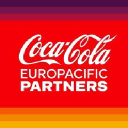← Home

🛍️ Products/Services
How do municipalities deal with waste?
The Coca-Cola Europacific Partners company offers a wide range of products and services, including:
1. Soft drinks: The company is known for its extensive selection of soft drinks, including Coca-Cola, Diet Coke, Sprite, Fanta, and more.
2. Juices and juice-based drinks: Coca-Cola Europacific Partners also produces and distributes a variety of juices and juice-based drinks, such as Minute Maid, Nestea, and FUZE Tea.
3. Energy drinks: The company's portfolio includes popular energy drinks such as Monster and Relentless.
4. Water and sports drinks: Coca-Cola Europacific Partners offers bottled water brands like Dasani and Glaceau Smartwater, as well as sports drinks like Powerade.
5. Alcoholic beverages: The company also has a presence in the alcoholic beverage market, producing and distributing brands such as Bacardi and Heineken.
6. Coffee and tea: Coca-Cola Europacific Partners offers a range of hot beverages, including coffee and tea brands like Costa Coffee and Tazo Tea.
Municipalities deal with waste in various ways, depending on their specific policies and resources. Here are some common methods of waste management used by municipalities:
1. Curbside collection: Most municipalities have curbside collection programs where waste is collected directly from households and businesses on a regular basis.
2. Recycling programs: Many municipalities have implemented recycling programs, where specific materials such as paper, plastic, and glass are collected separately and sent to recycling facilities.
3. Composting: Some municipalities have composting programs, where food and yard waste are collected and turned into nutrient-rich compost for use in gardens and agriculture.
4. Landfills: Municipalities that do not have access to recycling or composting facilities may dispose of waste in landfills, which are carefully managed and monitored to prevent environmental pollution.
5. Waste-to-energy facilities: Some municipalities have waste-to-energy facilities, where waste is burned to generate electricity.
6. Education and awareness campaigns: To encourage residents to reduce, reuse, and recycle, many municipalities run educational and awareness campaigns to promote sustainable waste management practices.
7. Environmental regulations: Municipalities may also implement regulations and restrictions on waste disposal and handling to protect the environment and public health.
See Company Q&A
The Coca-Cola Europacific Partners company offers a wide range of products and services, including:
1. Soft drinks: The company is known for its extensive selection of soft drinks, including Coca-Cola, Diet Coke, Sprite, Fanta, and more.
2. Juices and juice-based drinks: Coca-Cola Europacific Partners also produces and distributes a variety of juices and juice-based drinks, such as Minute Maid, Nestea, and FUZE Tea.
3. Energy drinks: The company's portfolio includes popular energy drinks such as Monster and Relentless.
4. Water and sports drinks: Coca-Cola Europacific Partners offers bottled water brands like Dasani and Glaceau Smartwater, as well as sports drinks like Powerade.
5. Alcoholic beverages: The company also has a presence in the alcoholic beverage market, producing and distributing brands such as Bacardi and Heineken.
6. Coffee and tea: Coca-Cola Europacific Partners offers a range of hot beverages, including coffee and tea brands like Costa Coffee and Tazo Tea.
Municipalities deal with waste in various ways, depending on their specific policies and resources. Here are some common methods of waste management used by municipalities:
1. Curbside collection: Most municipalities have curbside collection programs where waste is collected directly from households and businesses on a regular basis.
2. Recycling programs: Many municipalities have implemented recycling programs, where specific materials such as paper, plastic, and glass are collected separately and sent to recycling facilities.
3. Composting: Some municipalities have composting programs, where food and yard waste are collected and turned into nutrient-rich compost for use in gardens and agriculture.
4. Landfills: Municipalities that do not have access to recycling or composting facilities may dispose of waste in landfills, which are carefully managed and monitored to prevent environmental pollution.
5. Waste-to-energy facilities: Some municipalities have waste-to-energy facilities, where waste is burned to generate electricity.
6. Education and awareness campaigns: To encourage residents to reduce, reuse, and recycle, many municipalities run educational and awareness campaigns to promote sustainable waste management practices.
7. Environmental regulations: Municipalities may also implement regulations and restrictions on waste disposal and handling to protect the environment and public health.

📊 Get full analytics about Coca-Cola Europacific Partners
Sign up for free or log in📚 Your free copy of "The Checklist Value Investor — A Smarter Way to Pick Stocks" is waiting